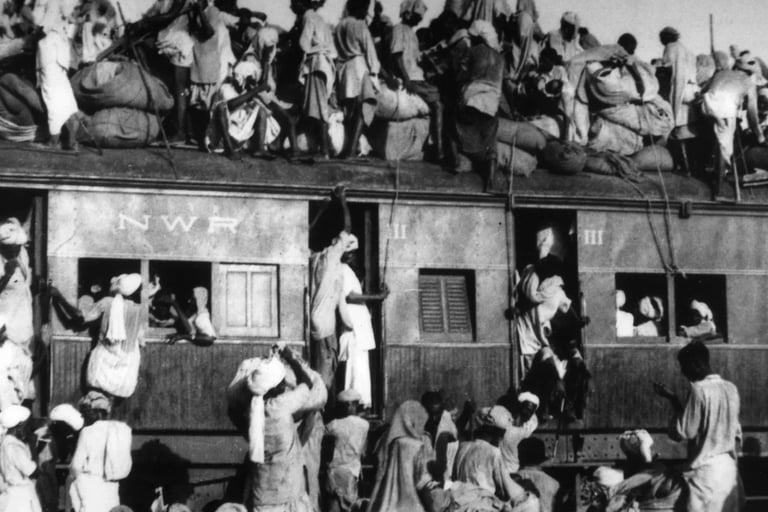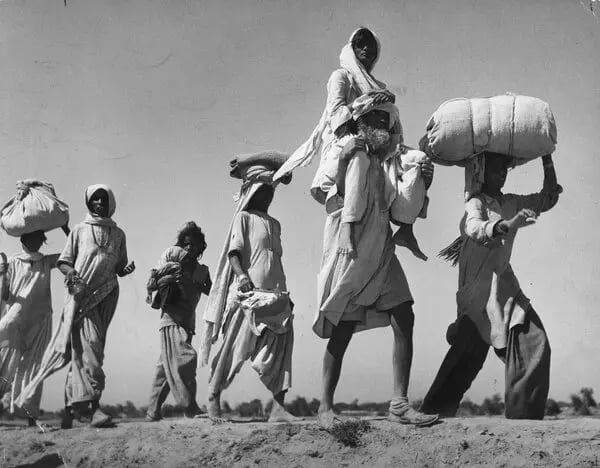Blaming the BJP Government for Being Pro-Hindu for Enacting the Citizenship Amendment Act (CAA) Is Not Correct
Our constitution itself is more accommodative toward Hindus and Sikhs who want to return to India from the neighboring Islamic nations in recognition of the simple fact that India was partitioned to carve out a new nation exclusively for the Muslims.
NATIONAL
Ayananta Chowdhury
3/10/20213 min read
Pakistan was created due to the demand of the Indian Muslims to create a country exclusively for them. This demand led to the demarcation of the Muslim-majority regions in India. The demarcated regions were subsequently carved out of India to form Pakistan. However, many Indian Muslims who had left India from its non-Muslim dominant areas to settle in Pakistan at the time of the partition, soon realized that Pakistan was not the place they expected, and so began returning to India - in what is called the second wave of migration. The second wave of migration happened in early 1948. The influx of numerous Muslims presented a unique problem to the then administration.
As per the terms of India's partition, the people coming from either side of the border would be rehabilitated in the vacated properties of those on the other side. That is, the Hindus and Sikhs who abandoned their houses in the newly formed Muslim-majority nation of Pakistan for refuge in the remaining non-Muslim-majority region were rehabilitated in the houses of the Muslims who vacated their houses in India to settle in Pakistan. Likewise, the Muslims who migrated to Pakistan were rehabilitated in the houses of the Hindus and Sikhs who relocated to India. So, in such a scenario, when many Muslims, however, began returning to India in 1948, the administration faced the dilemma of whether to remove the Hindus and Sikhs from the properties in which they had been lodged to return them to the Muslims—who were the original owners, or continue lodging them there.
On July 19, 1948, the Indian government introduced the “permit system” to keep the Muslims who already departed from India for Pakistan, from retuning. Noteworthily, the Hindus and Sikhs were called “displaced” people while the Muslims who left India were termed “evacuees.” According to the permit system, if evacuees from India wanted to return to India (read Indian Muslims) but if their left-over properties were being used to rehabilitate the displaced (read Hindus and Sikhs), the government could veto their return to India. Or, in other words, Indian citizenship was refused to the Muslims who had left India but later wanted to return—if their properties were utilized to rehabilitate the migrant Hindus and Sikhs from the other side of the border. Our Indian constitution is premised upon this system. In fact, even though 22,000 Muslims wanted to return by March 1948, the Indian government issued only 2000 permits until August 1948.
Remarkably, the “permit system” upon which the Indian constitution is based only applied to the people of West Pakistan and not to the people of East Pakistan (current Bangladesh). This is because India realized that while West Pakistan had only seven to eight hundred thousand Hindus, East Pakistan had 16 million Hindus at the time. So, if the permit system were to apply to both West and East Pakistan, the Hindus from East Pakistan or modern-day Bangladesh couldn't return to India from the Islamic nation even if they faced discrimination. The large number of Hindus of East Pakistan, too, had to be denied Indian citizenship on the same ground that debarred the entry of Muslims from Pakistan.
The Citizenship Amendment Act (CAA) is, thus, aligned with the directive principles of our constitution. The Indian constitution recognizes that the erstwhile undivided country of India was partitioned to form a new country of Pakistan exclusively for its Muslim population on their demand, and hence the remaining part of India ought to be more accommodative to the non-Muslims. Therefore, if the constitution itself is premised upon this logical recognition, then why blame the current government of being communal for introducing the CAA?
Isn’t it only fair if the Indian government wants to give the Hindus and Sikhs of our neighboring Islamic nations a homeland in the form of Indian citizenship—if they want to relocate to India? Also, while the Muslim population increased in India over the decades since partition, the number of Hindus and Sikhs in Pakistan and Bangladesh has massively declined, evidently due to the recorded incidents of the constant persecution. Leaving them in their miserable state to withstand further persecution there will, perhaps, be a cold act of indifference and inhumanity.



